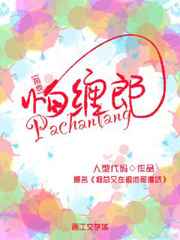LETTER 350
您可以在百度里搜索“The Works of Charles and Mary Lamb — Volume 6 艾草文学(www.321553.xyz)”查找最新章节!
LETTER 350
(Possibly incomplete)
CHARLES LAMB TO THOMAS HOOD [P.M. August 10, 1824.]
And what dost thou at the Priory? Cucullus non facit Monachum. English me that, and challenge old Lignum Janua to make a better.
My old New River has presented no extraordinary novelties lately; but there Hope sits every day, speculating upon traditionary gudgeons. I think she has taken the fisheries. I now know the reason why our forefathers were denominated East and West Angles. Yet is there no lack of spawn; for I wash my hands in fishets that come through the pump every morning thick as motelings,—little things o o o like that, that perish untimely, and never taste the brook. You do not tell me of those romantic land bays that be as thou goest to Lover's Seat: neither of that little churchling in the midst of a wood (in the opposite direction, nine furlongs from the town), that seems dropped by the Angel that was tired of carrying two packages; marry, with the other he made shift to pick his flight to Loretto. Inquire out, and see my little Protestant Loretto. It stands apart from trace of human habitation; yet hath it pulpit, reading-desk, and trim front of massiest marble, as if Robinson Crusoe had reared it to soothe himself with old church-going images. I forget its Christian name, and what she-saint was its gossip.
You should also go to No. 13, Standgate Street,—a baker, who has the finest collection of marine monsters in ten sea counties,—sea dragons, polypi, mer-people, most fantastic. You have only to name the old gentleman in black (not the Devil) that lodged with him a week (he'll remember) last July, and he will show courtesy. He is by far the foremost of the savans. His wife is the funniest thwarting little animal! They are decidedly the Lions of green Hastings. Well, I have made an end of my say. My epistolary time is gone by when I could have scribbled as long (I will not say as agreeable) as thine was to both of us. I am dwindled to notes and letterets. But, in good earnest, I shall be most happy to hail thy return to the waters of Old Sir Hugh. There is nothing like inland murmurs, fresh ripples, and our native minnows.
"He sang in meads how sweet the brooklets ran,
To the rough ocean and red restless sands."
I design to give up smoking; but I have not yet fixed upon the equivalent vice. I must have quid pro quo; or quo pro quid, as Tom Woodgate would correct me. My service to him. C.L.
[This is the first letter to Hood, then a young man of twenty-five, and assistant editor of the London Magazine. He was now staying at Hastings, on his honeymoon, presumably, and, like the Lambs, near the Priory.
"Cucullus non facit Monachum"—A "Lamb-pun." The Hood does not make the monk.
"Old Lignum Janua"—the Tom Woodgate mentioned at the end of the letter, a boatman at Hastings. Hood wrote some verses to him.
"My old New River." This passage was placed by Hood as the motto of his verses "Walton Redivivus," in Whims and Oddities, 1826.
"Little churchling." This is Lamb's second description of Hollingdon Rural. The third and best is in a later letter.
"There is nothing like inland murmurs." Lamb is here remembering Wordsworth's Tintern Abbey lines:—
With a sweet inland murmur.
In the Elia essay "The Old Margate Hoy" Lamb, in speaking of Hastings, had made the same objection.
In a letter to his sister, written from Hastings at this time, Hood says:—
This is the last of our excursions. We have tried, but in vain, to find out the baker and his wife recommended to us by Lamb as the very lions of green Hastings. There is no such street as he has named throughout the town, and the ovens are singularly numerous. We have given up the search, therefore, but we have discovered the little church in the wood, and it is such a church! It ought to have been our St. Botolph's. … Such a verdant covert wood Stothard might paint for the haunting of Dioneus, Pamphillus, and Fiammetta as they walk in the novel of Boccacce. The ground shadowed with bluebells, even to the formation of a plumb-like bloom upon its little knolls and ridges; and ever through the dell windeth a little path chequered with the shades of aspens and ashes and the most verdant and lively of all the family of trees. Here a broad, rude stone steppeth over a lazy spring, oozing its way into grass and weeds; anon a fresh pathway divergeth, you know not whither. Meanwhile the wild blackbird startles across the way and singeth anew in some other shade. To have seen Fiammetta there, stepping in silk attire, like a flower, and the sunlight looking upon her betwixt the branches! I had not walked (in the body) with Romance before. Then suppose so much of a space cleared as maketh a small church lawn to be sprinkled with old gravestones, and in the midst the church itself, a small Christian dovecot, such as Lamb has truly described it, like a little temple of Juan Fernandes. I could have been sentimental and wished to lie some day in that place, its calm tenants seeming to come through such quiet ways, through those verdant alleys, to their graves.
In coming home I killed a viper in our serpentine path, and Mrs. Fernor says I am by that token to overcome an enemy. Is Taylor or Hessey dead? The reptile was dark and dull, his blood being yet sluggish from the cold; howbeit, he tried to bite, till I cut him in two with a stone. I thought of Hessey's long back-bone when I did it.
They are called adders, tell your father, because two and two of them together make four.] The Works of Charles and Mary Lamb — Volume 6



